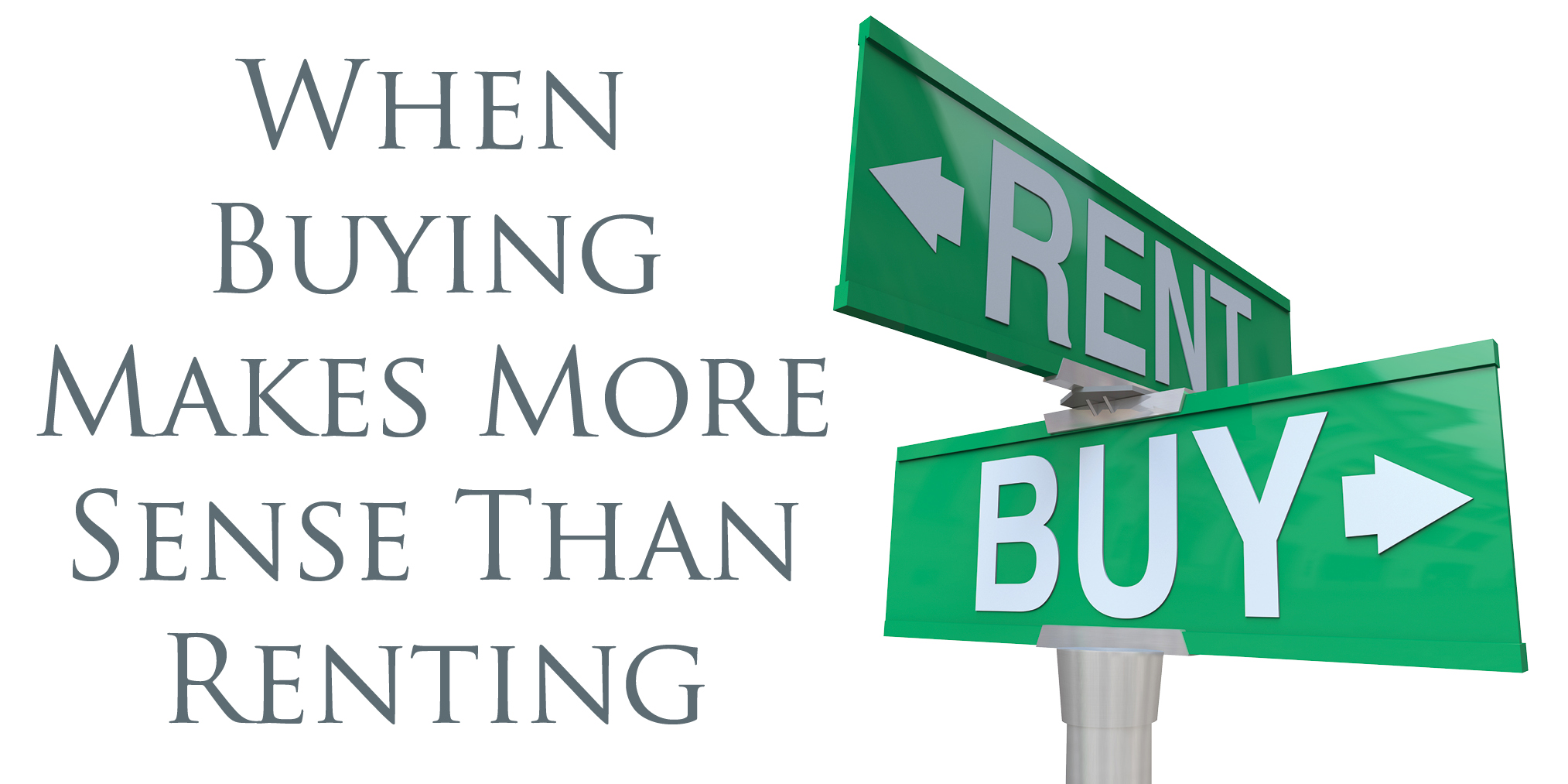Surveys of renters show that the desire to own a home remains strong even after the housing crisis. In fact, 75 percent of Americans say they want to own a home and 80 percent of millennials aspire to homeownership1. The good news is that current financial incentives to own a home are aligned with consumer preferences. Rising rents, low mortgage rates and the availability of low down payment loans make buying more attractive nationwide and in individual markets.
Analysis of real estate data on a national basis shows that it’s cheaper to buy a home than to rent in all but a handful of markets. In the Washington, D.C., region, high rents and low mortgage rates combine to tilt the scale in favor of buying. In some submarkets in the area, buying can be far more financially savvy since rents have continued to rise while home prices have stabilized.
When comparing rental prices to ownership options, you should also factor in the tax advantages of buying a home and the ability to build equity in your property as you pay down your mortgage balance. Low mortgage rates keep buying more affordable, too, since borrowing at a 3-4 percent interest rate keeps the portion of your payment that goes to interest very low.
Kick starting your decision to buy
Deciding the time is right for you to buy your first home depends first on your commitment to stay in an area. Generally, it’s best to buy and hold property for five to seven years to recoup the costs. However, keeping the property and renting it can be a viable option if you find you need to move sooner.
Some renters opt out of looking for a home to purchase, erroneously believing that they need a down payment of 20 percent and perfect credit to qualify for a loan. In reality, numerous programs are available that require a down payment as low as 3 or 3.5 percent, and some homes can even be purchased with zero down if the property is approved for USDA financing or the buyer is a veteran. In addition, many first-timers can obtain down payment assistance through state or local homebuyer programs.
Qualifying for a loan is easier than many renters believe, although you do need good credit (generally a FICO score of 640 or higher) and sufficient income to repay the loan. Consulting a lender is the best way to determine whether you can be approved for a loan now or need to improve your finances for a future approval.
If you’re thinking about buying a home, consult a Long & Foster agent who can help you narrow your priorities and find a variety of housing options to meet your needs. Representatives from Prosperity Home Mortgage are also available in most Long & Foster offices to help you evaluate your financing options for homeownership.
AUTHOR: Larry “Boomer” Foster is the President of Long & Foster Real Estate.
Source
1. Trulia, Housing In 2016: Hesitant Households, Costly Coasts and the Bargain Belts, http://www.trulia.com/blog/trends/2016-housing-predictions/
*The information contained in this article is not intended to be and does not constitute financial or investment advice.





